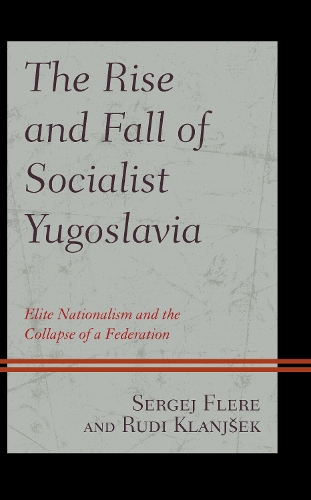
The Rise and Fall of Socialist Yugoslavia: Elite Nationalism and the Collapse of a Federation
(Paperback)
Available Formats
Publishing Details
The Rise and Fall of Socialist Yugoslavia: Elite Nationalism and the Collapse of a Federation
By (Author) Sergej Flere
By (author) Rudi Klanjek
Bloomsbury Publishing PLC
Lexington Books
20th October 2021
United States
Classifications
Professional and Scholarly
Non Fiction
Nationalism and nationalist ideologies and movements
949.7023
Physical Properties
Paperback
386
Width 153mm, Height 219mm, Spine 24mm
581g
Description
This book examines the relationship between nationalism and the rise and fall of Yugoslavia under the rule of Josip Broz Tito. It deals particularly with the interactions between communist and intellectual elites. The authors analyze elites initial enthusiasm about the Yugoslav federation and how, with time, they found themselves unable to suppress the nationalists in Yugoslavia. Other scholars have argued that, in a certain sense, Titos Yugoslavia proved to be a hatchery for the nations that once constituted Yugoslavia, making them ever closer to completeness. However, as the authors highlight in this study, this process was one of conflict. The personal role of Tito as an arbiter was essential, although, for the majority of his time in power, he did not act as a dictator. His departure was strongly felt in the 1980s, when ethnic entrepreneurial activity began to flourishand when ethnic and political relations had gone out of control. While a significant part of this book follows the chronology of ethnic elite interaction in communist Yugoslavia, the global context of Yugoslavias rise and fall is taken into account. The authors also use Yugoslavia as a case study to test the validity of nationalism studies more generally.
Reviews
This is an important study which complements the existing arguments and what some have embraced as definite explanations of the Yugoslav drama. By reviewing the voluminous literature and pointing the finger at problematic academic agendas, the authors unpack a whole range of dilemmas and discrepancies, but also invite new contributions. Moreover, the complex Yugoslav puzzle is of great relevance for assessments of the current European context, either in terms of lessons learnt or disintegrationist tendencies characterizing the European project. -- Branislav Radelji, University of East London
Author Bio
Sergej Flere is emeritus member of the Slovene Sociological Society.
Rudi Klanjsek is associate professor of sociology and researcher at the Center for the Study of Post-Socialist Societies at the University of Maribor.
